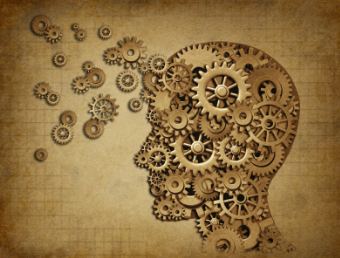By Patrick Cahillane – Life, Executive & Business Coach with One Source International Coaching and Training and Founder of The One Source Personal Development Network

In the realm of personal development, understanding the inner workings of the human mind has always been a fascinating subject. Over the years, neuroscience has emerged as a groundbreaking field that sheds light on the intricate workings of our brain. Harnessing the knowledge of neuroscience in personal development can be an invaluable tool for individuals seeking growth, self-improvement, and a deeper understanding of themselves. In this blog post, we will explore how neuroscience can be used to enhance personal development and provide practical insights for incorporating this knowledge into your journey of self-discovery.
- Rewiring Your Brain: Neuroplasticity, the brain’s remarkable ability to reorganize itself, lies at the heart of personal development. By understanding how the brain adapts and changes, we can actively rewire our neural pathways to foster positive habits and patterns. Neuroscience research suggests that consistent practice and repetition can lead to the formation of new neural connections, allowing us to break free from limiting beliefs and develop empowering thought patterns. Whether it’s practicing mindfulness, affirmations, or visualization techniques, engaging in activities that stimulate neuroplasticity can pave the way for personal growth.
- Embracing Emotional Intelligence: Emotional intelligence, the ability to understand and manage emotions, plays a vital role in personal development. Neuroscience has provided valuable insights into the brain’s emotional processing mechanisms, offering tools to enhance emotional intelligence. By recognizing and labeling emotions, we can activate the prefrontal cortex, which helps regulate emotional responses. Techniques like journaling, meditation, and self-reflection can help us become more aware of our emotions, fostering emotional resilience and enabling us to respond thoughtfully rather than react impulsively.
- Cultivating Self-Compassion: Self-compassion is a powerful practice that promotes self-acceptance and kindness towards oneself. Neuroscience research reveals that self-compassion activates the brain’s reward centers, triggering the release of oxytocin and promoting a sense of well-being. Incorporating self-compassion into personal development can help individuals overcome self-criticism, reduce stress, and increase motivation. By practicing self-compassionate language, engaging in self-care activities, and reframing negative self-talk, we can rewire our brains to embrace a more compassionate and nurturing mindset.
- Mind-Body Connection: The mind-body connection is a fundamental aspect of personal development, and neuroscience provides valuable insights into this intricate relationship. The brain’s communication with the body influences our physical and emotional well-being. Techniques such as breathwork, meditation, and visualization can help regulate the autonomic nervous system, reducing stress and promoting relaxation. By understanding the impact of stress on our brain and body, we can actively engage in practices that support our overall well-being.
- Creating Habits for Success: Neuroscience research has unraveled the mechanisms behind habit formation, offering practical strategies to create lasting change. By understanding the habit loop (cue, routine, reward), we can consciously design new habits that align with our personal development goals. Breaking down larger goals into smaller, manageable actions helps activate the brain’s reward system, fostering motivation and a sense of accomplishment. By utilizing techniques such as habit stacking, visualization, and positive reinforcement, we can rewire our brains for success and cultivate habits that propel us forward.
The marriage of neuroscience and personal development offers a wealth of possibilities for individuals seeking growth, fulfillment, and self-improvement. By leveraging the power of neuroplasticity, emotional intelligence, self-compassion, the mind-body connection, and habit formation, we can unlock our brain’s potential and embark on a transformative journey. Incorporating these insights into our daily lives empowers us to make conscious choices, rewrite our stories, and embrace personal development to a higher level.
Stay Focused and Stay Strong
Patrick
